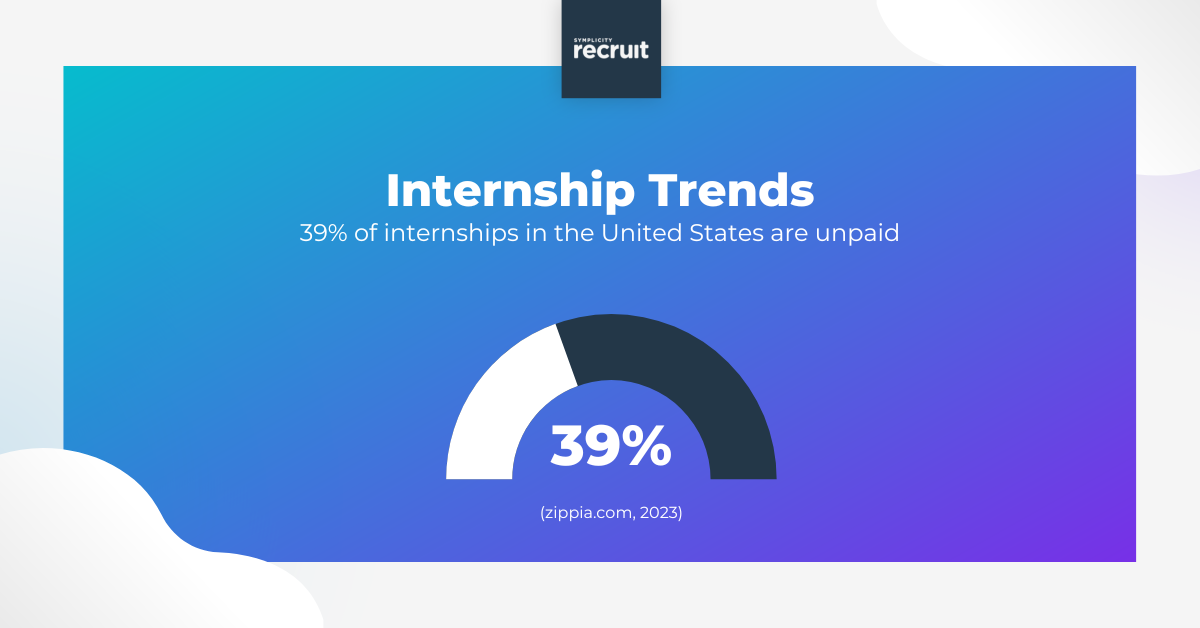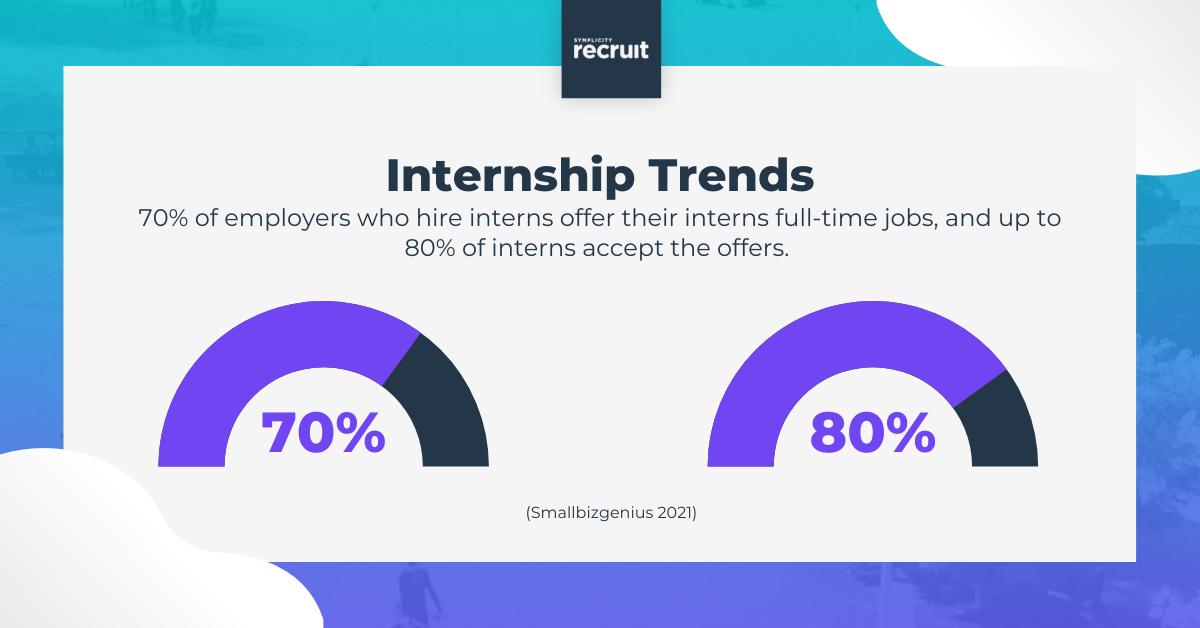With internship season around the corner, leading employers are starting to gear up for the summer, when roughly 60% of students who are about to graduate from college and recent graduates, will join an internship program in the hopes of becoming young professionals with full-time positions post-graduation. While internship opportunities add valuable work experience for students, for employers, an internship program is more than a preview of future full-time employees. To guarantee the success of an internship program, employers need to adhere to strict internship laws and compliances as part of their workforce planning strategy.
Here's everything you need to know about internship program laws in the United States in 2023.
An Overview of Internships to Hire Early Talent
At its core, an internship program is intended to be an educational opportunity for companies to engage students in learning experiences that will enhance their career development. Interns typically sign on for a specific job opening for a period of time that coincides with their school calendar.
Some students participate in internships to fulfill graduation requirements while receiving academic credit. Others choose internships to supplement their education journey outside of school, typically during summer breaks, when they have more time to dedicate to their personal development in the workforce. Internships can be full-time or part-time depending on how the positions are structured or what the academic institution requires to graduate.
Internship Laws to Review
Paid vs. Unpaid Internships

According to the Department of Labor (DOL), because an internship program is mainly composed of students and not "for profit" employees, under the Fair Labor Standards Act (FLSA), it is not required to compensate for their work. What this means is that internships are meant to be a source of free labor in which early talent gains cutting-edge skills that they can use toward finding a meaningful job in their industry of choice. An unpaid internship program is completely legal in the United States as long as the intern is the primary beneficiary of the arrangement.
The federal government has identified a seven-point test that helps determine whether or not an intern is a party that's benefiting from the intern-employer relationship. The seven points are:
- Interns understand that the internship program is to gain professional experience and not for compensation.
- Training is similar to that received at their academic institution.
- The internship program is to be tied to the intern's current program of study and they're to receive academic credit.
- The internship program must accommodate the intern's academic calendar.
- It's understood by the intern that the internship program does not guarantee or provide entitlement to a permanent position at its conclusion.
- An intern's work is not to replace an existing employee's work. Instead, it's intended to complement the role, while adding invaluable skills to fill skill gaps.
- The internship program is to be limited to the period during which the intern receives beneficial learning.
What about companies offering paid internship opportunities?
Companies offering paid internship opportunities are companies in which the company is the primary beneficiary in the employer-intern relationship. What this means is that if, after the analysis of the seven points above, the internship program falls outside of the seven parameters, then technically the intern is treated as a temporary employee and, therefore, they must be paid accordingly. Under the FLSA act, the intern is then entitled to either minimum wage or overtime pay.
How Many Hours Can Interns Legally Work in the United States?
Early talent today is eager to get their careers started. However, during their intern phase, they're still limited to working a certain number of hours. According to the National Environmental Health Association, internship opportunities during the school year are recommended to not exceed 10 to 20 hours a week.
During the summer, interns can commit to 40-hour work weeks. This is especially true for interns that are getting paid for the duration of their internship. In some instances, leading employers may set a cap of 240 hours for an internship project.
Liability Insurance for Interns
In most cases, interns can get workers' compensation benefits in both paid and unpaid internship programs. However, this varies between states. Early career talent requires, much like other employees, some type of protection from injuries while on the job. The key distinction here will be whether or not you, as the employer, decide to define the intern as an unpaid intern or as an employee of the company for a set period of time.
If the internship program is paid, and therefore, considers all interns as actual employees of the company, then any on-the-job injuries fall under the responsibility of the company and should be covered by workers' compensation. However, if the terms of the internship program are strictly defined as an educational experience that's not compensated, then the responsibility would fall on the school or university sponsoring the program.
Sick Pay Regulations for Interns
Earned and paid sick time are hot topics in labor law, and changes are coming quickly. Because there's no federal regulation aside from an executive order requiring paid sick leave for federal contractors, cities and states are designing their regulations to meet the needs of constituents. As of 2023, 14 states and the District of Columbia have enacted paid sick time laws, along with several cities and municipalities. Unfortunately, the result is inconsistent, and requirements for providing earned and paid sick time can vary widely depending on the work location.
Determining which laws apply to interns can be a complex endeavor. Generally speaking, earned and paid sick time laws do not apply to interns, but they do apply to employees. This point relates to the seven-point test that distinguishes an intern from an employee.
Why Recruiting Early Talent Is Key to Your Company's Success

Lead employers everywhere benefit from engaging early talent. Providing internship opportunities to foster early careers, not only helps companies gain a competitive advantage and helps diversify Gen Z talent, but it also encourages businesses to partner with colleges and universities to source early career talent around the country.
Remember, Gen Z is the most diverse generation today. Current and upcoming graduating students are becoming increasingly valuable because of their diverse talent, forward-thinking skills, and technical backgrounds in a variety of subjects. They not only add to the global workforce but also help companies attain long-term competitive advantage.
About Recruit
Symplicity Recruit is the premier early talent recruiting platform used by over 600,000 employers. Key features include centralized management of job postings across a network of over 600 academic institutions, a filterable resume database, and the ability to directly message students. Contact us to learn more.


